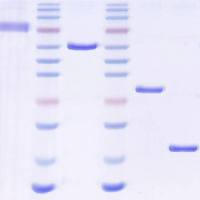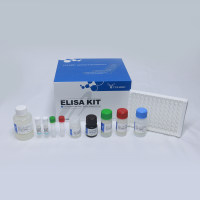Inhibition of Tumor Metastasis by Liposomes Containing Glyco-Replica Peptides
互联网
508
Liposomes can be used as ideal drug carriers, and many previous studies have demonstrated the prolonged circulation time, enhanced efficacy, and reduced toxicity of encapsulated drugs (1 –3 ). If liposomes could be delivered only to the target site, liposomal drugs would overcome most of the diseases including tumor as their “magic bullet,” since one could use an appropriate amount of drugs without considering side effects. For such a purpose, specific antibody-modified liposomes, so called immunoliposomes, have been widely attempted. Conventional liposomes, however, have limitations: They are recognized as foreigners by the immune defense system and removed by the reticuloendothelial system (RES). Many attempts have been made to reduce the REStrapping of liposomes, and long-circulating liposomes were developed by a modification of liposomes with glucuronide derivative (4 ,5 ) or polyethylene glycol (PEG) (6 –8 ). Rigid, small-sized liposomes are also known to have longcirculating character. Antibody modification for active targeting of liposomes, however, enhances RES-trapping even though long-circulating liposomes are used. On the contrary, small molecule ligands may be more desirable for active targeting of liposomes because RES recognizes them less than antibodies. If we could easily prepare small molecule ligands, liposomes could be easily modified. However, in many cases, cell surface molecules or their ligands are glycoconjugates and difficult to prepare in large amount.









